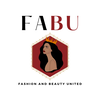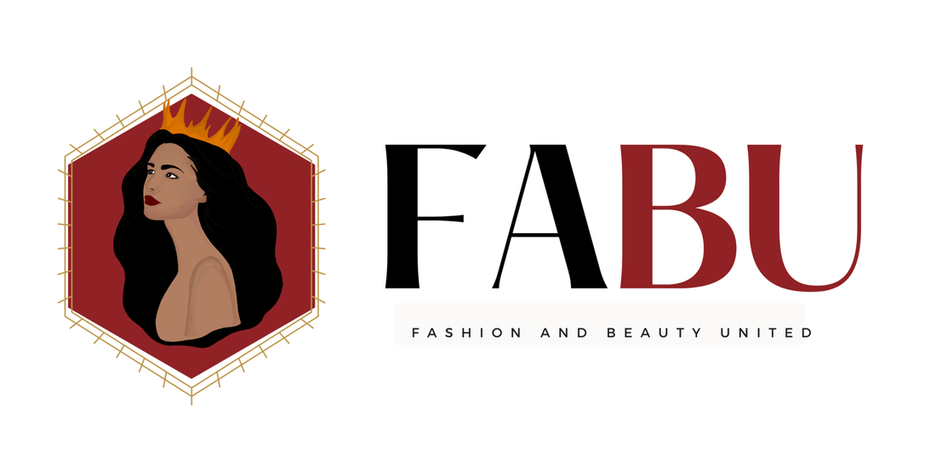|
In a world that constantly bombards us with expectations, comparisons, and judgments, it's all too easy to fall into a cycle of self-hate. We criticize ourselves, focus on our flaws, and diminish our own worth. However, the time has come to break free from this destructive pattern and embrace our full potential. It's time to realize that we are enough just as we are and take the necessary steps to cultivate self-love, self-acceptance, and self-empowerment.
Recognizing the Self-Hate Cycle: Self-hate often stems from societal pressures, unrealistic standards, and our own negative self-talk. We internalize the messages that we are not smart enough, attractive enough, successful enough, or worthy enough. This toxic cycle erodes our confidence and prevents us from fully embracing our abilities and talents. Acknowledge Your Worth: The first step towards ending self-hate is acknowledging your worth. Remember that you are unique, with your own set of skills, experiences, and qualities. Embrace your strengths and celebrate your achievements, no matter how big or small they may be. Recognize that self-worth comes from within and is not dependent on external validation. Challenge Negative Self-Talk: Negative self-talk can be one of the biggest contributors to self-hate. Take a moment to listen to your inner dialogue and identify any negative thoughts or beliefs that hold you back. Replace them with positive affirmations and self-compassion. Treat yourself with kindness and understanding, just as you would a dear friend. Reframe your thoughts to focus on your progress, potential, and resilience. Set Realistic Expectations: Society often bombards us with unrealistic expectations, leading to feelings of inadequacy. It's essential to set realistic goals and expectations for yourself. Remember that success looks different for everyone, and your journey is unique. Break down your goals into smaller, achievable steps, and celebrate each milestone along the way. Embrace the process and enjoy the growth that comes with it. Embrace Self-Care: Self-care is crucial in breaking the self-hate cycle and stepping into your full potential. Take time to nurture your physical, mental, and emotional well-being. Engage in activities that bring you joy, whether it's practicing mindfulness, pursuing hobbies, spending time with loved ones, or engaging in regular exercise. Prioritize self-care as an essential part of your routine and watch how it positively impacts your self-perception. Surround Yourself with Support: Surrounding yourself with positive influences is vital in overcoming self-hate and unlocking your full potential. Seek out supportive friends, family members, or mentors who uplift and encourage you. Engage in communities that promote self-love and personal growth. Remember, you don't have to face this journey alone, and seeking support is a sign of strength. Embrace Growth and Learning: To step into your full potential, embrace a mindset of continuous growth and learning. Recognize that failures and setbacks are not reflections of your worth, but opportunities for growth and improvement. Embrace challenges as stepping stones towards personal development and see them as valuable learning experiences. With each obstacle you overcome, you become stronger and more resilient. Breaking free from the cycle of self-hate and stepping into your full potential is a journey that requires self-awareness, self-compassion, and determination. Remember that you are enough, just as you are. Embrace your unique qualities, challenge negative self-talk, set realistic expectations, practice self-care, and surround yourself with positive influences. As you cultivate self-love and empowerment, you'll discover a newfound sense of purpose and unleash your full potential!
0 Comments
In the age of social media and pervasive beauty standards, millennials are spearheading a powerful movement that advocates for body positivity and self-acceptance. Unlike any previous generation, millennials are challenging societal norms and reshaping the conversation around body image, promoting inclusivity and self-love. In this blog post, we will explore the significance of body positivity and self-acceptance in the millennial generation and the steps they are taking to foster a culture of love, acceptance, and empowerment.
I. The Impact of Social Media: Social media platforms have undoubtedly played a substantial role in shaping millennial perceptions of beauty and body image. The constant exposure to carefully curated, edited, and filtered images has led many individuals to compare themselves to unrealistic standards of perfection. However, the millennial generation is also using these platforms as a tool for change. Influencers, bloggers, and everyday individuals are harnessing the power of social media to challenge beauty norms, share their personal stories, and create safe spaces for body positivity discussions. II. Rejecting Unrealistic Standards: Millennials are increasingly rejecting the narrow and unrealistic beauty standards perpetuated by the media. They understand that beauty comes in diverse forms and sizes, and that everyone deserves respect and acceptance regardless of their appearance. Instead of striving for an unattainable ideal, millennials are encouraging self-love and embracing their unique attributes. They are rejecting the notion that self-worth should be tied to physical appearance and advocating for a more holistic approach to personal well-being. III. Creating Inclusive Communities: The millennial generation is actively building inclusive communities that celebrate diversity and promote body positivity. Online platforms and offline events provide spaces for individuals to share their stories, express themselves authentically, and find support in their journey towards self-acceptance. These communities foster a sense of belonging, encourage positive body image, and provide resources for mental and emotional well-being. Through these initiatives, millennials are empowering each other to challenge societal norms and prioritize self-care. IV. Advocating for Change: Millennials are not just focused on personal transformation; they are also advocating for systemic change. They are using their collective voices to challenge the fashion and beauty industries, demanding greater representation and inclusivity. Brands are increasingly embracing body diversity in their campaigns, featuring models of all sizes, ethnicities, and abilities. This shift not only reflects the demands of the millennial consumer but also has a profound impact on younger generations, who are growing up with more realistic and diverse representations of beauty. V. The Journey towards Self-Acceptance: The journey towards self-acceptance is a deeply personal one, and millennials are taking significant steps to prioritize their mental and emotional well-being. They are seeking therapy, practicing self-care, engaging in body-positive activities such as yoga and mindful eating, and cultivating supportive relationships. By nurturing their inner selves and embracing self-compassion, millennials are breaking free from the toxic cycle of self-judgment and finding peace and acceptance within themselves. Millennials are at the forefront of the body positivity and self-acceptance movement, challenging the status quo and reshaping societal attitudes towards beauty and self-worth. Through their activism, inclusive communities, and demand for change, they are creating a more accepting and compassionate world. As this movement gains momentum, it is essential for all generations to join forces and foster a culture of body positivity, acceptance, and self-love for a brighter future. Together, we can redefine beauty and empower individuals to embrace their uniqueness, celebrating the beauty that resides within each and every one of us. 6/5/2023 0 Comments Should Drag Shows Be Banned?Drag queens have long been a vital part of the LGBTQ+ community, using their artistry and creativity to challenge traditional gender norms and celebrate diversity.
However, this year, some conservative groups have started to push for bans on drag performances, claiming that they are inappropriate for children and promote immoral behaviour. These bans not only infringe on the rights of drag queens to express themselves, but also send a harmful message to LGBTQ+ youth that their identities are not valid or worthy of celebration. Anti-drag bills have been introduced in at least fifteen states this year, which limits drag in public places after several protests began all over the US that called to end “Drag Queen Storytime” at public libraries because they believe children should not be exposed to that. As someone who believes in equality and freedom of expression, it’s disappointing to see the recent rise of banning drag performances in the US. While there’s no plan to ban drag here in Canada, protests have also been popping up all over the country, even here in Windsor. In October 2022, Healthy Mama cancelled a princess-themed Drag Queen Storytime due to push back from specific community members who falsely accused the restaurant of supporting child grooming. With all this community push back, it’s important to remember that drag is a form of art and performance and should be protected. Drag queens are not promoting immorality or sexual behaviour but using their platform to challenge societal norms and encourage acceptance and love. Drag is meant to be entertaining. Before we get into it, it’s worth mentioning that there are different types of drag queens and not all drag performances are for everyone. Not all drag performances are family friendly. Some queens swear, tell explicit sexual jokes, and showcase hyper-sexualized routines only meant for adult audiences. Unfortunately, when some people hear "Drag Queen Storytime", they believe these are the types of performances being performed to kids at libraries, when that’s simply not true. For every promiscuous queen out there, there are also campy queens who want to spread happiness, joy and positivity. The queens who participate in Drag Storytime want to help spread positive stories of love and acceptance. And trust me, when it comes to love and acceptance, these are lessons that even some adults need to listen to and learn about. Drag Storytime not only gives kids a fun way to access books and reading, but it’s also a place that lets everyone participate. It’s a place where kids can go, not necessarily because they identify as LGBTQ+, but for any kid who feels like an outsider who doesn’t necessarily fit in. It’s for the weird kids, the artistic kids, not just the ones who may identify as LGBTQ+. Drag Storytime also acts as a fun way to get kids interested in reading. If it gets kids to pick up a book and away from TikTok and violent video games, is it really that bad? They are reading. And reading is what? Fundamental. Drag is not for everyone – as a parent, you choose what's right for your child. At the end of the day, instead of banning drag, why not leave discretion to the parents? If you don’t want your kid exposed to drag, don’t bring them to a drag show. If a Drag Storytime is going on at the library, then don’t go. Drag is not for everyone. If you don’t want your child exposed to it, don’t expose them. You are the parent. For parents afraid that exposing their child to a drag queen will make their child gay, remember that our favourite TV characters have dressed in drag at some point to make us laugh and entertain. Bugs Bunny often dressed as a woman for laughs to trick Elmer Fudd. SpongeBob, Bart Simpson, and Fred Flintstone dressed in drag during their time on TV. Not to mention the many movies like Mrs Doubtfire, She’s the Man, Tootsie, Big Momma’s House, etc., also feature drag. I know many people who have seen a show or a movie where a character dresses in drag and still identifies as heterosexual. As a society, we should embrace diversity and celebrate all forms of expression rather than silencing those who do not fit into narrow definitions of gender and sexuality. I urge all communities to reject these bans and support the right of drag queens to express themselves freely and safely. |
CategoriesCategoriesAuthorJulianna Bonnett Archives
December 2023
Categories |
Search by typing & pressing enter





 RSS Feed
RSS Feed